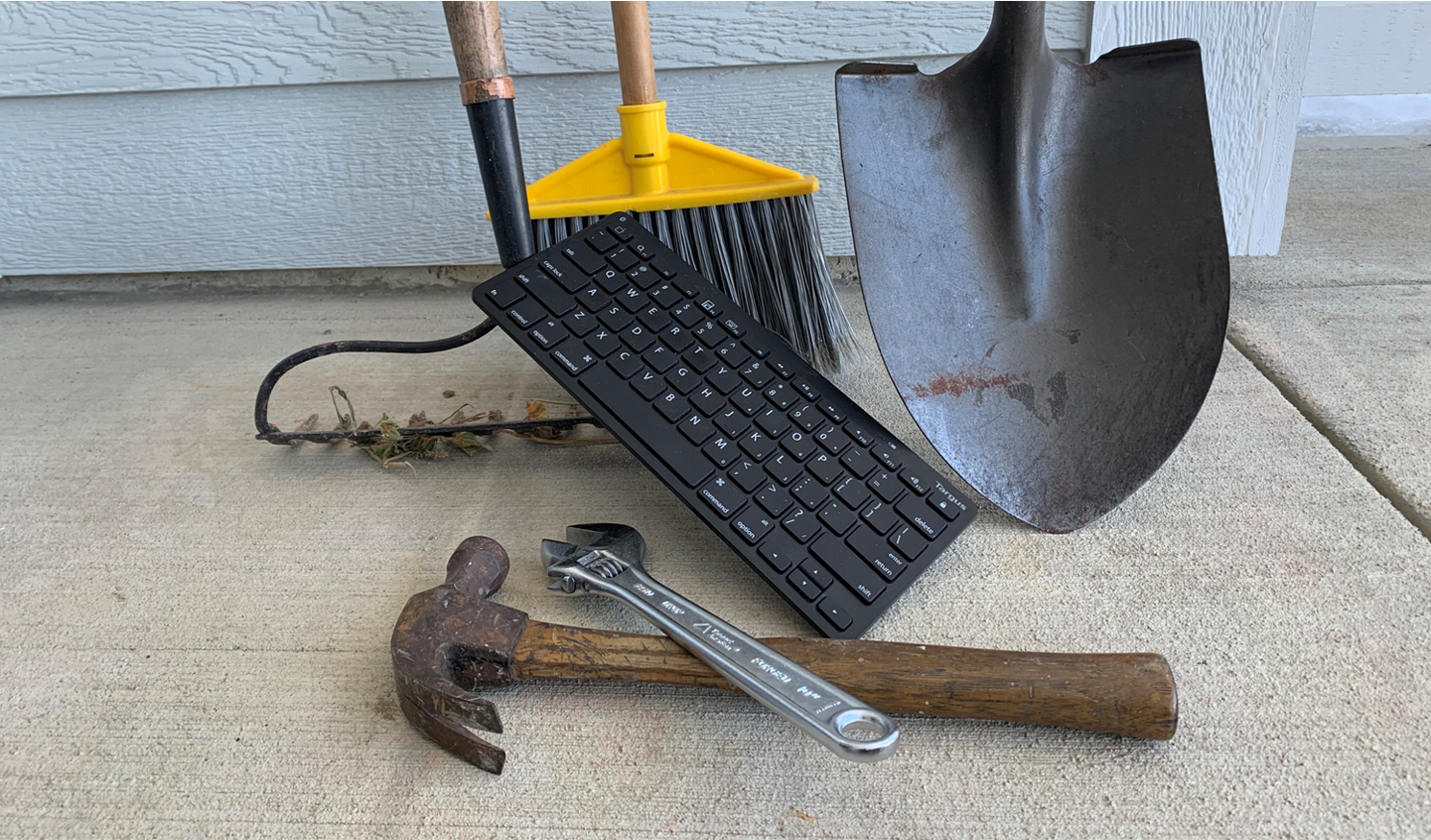I am fortunate to have had only one job I did not like. I was employed as a busboy one summer of my college years and was glad when the three months came to their end. Of course, there is a difference between a job and work. When we talk about the jobs we may have had or now have, we generally mean employment. Work for which we receive pay, monetary compensation. A boss and set hours may or may not be a part of any given job. We may be paid an hourly wage, a salary, or a commission; for the sake of common understanding, we might say a job is what we do to earn money.
Work is something more and something often better than a job. In Genesis 2, the first human is created, among other things, to work and to keep the garden. To be human is to work, a work that is caring and productive. In his letter to the Ephesians, Paul, admonishes his friends to do honest work both to provide for self and to provide for others (Ephesians 4:28). In his commentary on Ephesians, John Calvin says such work for the sake of others is part of the love we owe our neighbors. And where job and work overlap, Calvin recommends we “choose those employments which yield the greatest advantage to (our) neighbors.”
All jobs involve work, but not all work is a job.
Work is essential to being and thriving as a human. A job, on the other hand, is working for, typically and in our time, monetary compensation. Not all jobs are good. The boss may be abusive, the hours unreasonable, and the pay unjust. Neither are all employees good employees. Some are slackers, cheats, or troublemakers. And some just aren’t suited to the job to be done.
Work is good, a job may or may not be good.
The distinction between work and a job is not esoteric or particularly Biblical, though the Bible clearly sees the difference.
I was surprised when I read a New York Times column last week published under the headline “There’s No Natural Dignity in Work.” I found the headline to be provocative, perhaps the headline editor’s clickbait used to lure me into reading what had been written. Succumbing to the clickbait, I read the article. The headline was taken from the words of an expert quoted in the column.
The column itself was about public policy, broadly written to include welfare reform, minimum wage increases, and tax credits for parents of at-home children. Some of what the writer and his quoted experts said seem reasonable and some not. But my point is not to comment on public policy.
I was surprised the columnist and the experts conflated jobs and work, and when the expert asserted that there is no natural dignity in work, she was talking about jobs, some of which are lousy, but also the work that makes us human. For some reason, she did not see the difference between work and a job. Some jobs by the conditions of employment strip their employees of dignity. Workers become alienated. Good social policy must address employment that eats away at human dignity.
Work can be dignified, but only with the right public policy, the expert says. But it is a dignity of the same sort we should give to leisure activities, she declares. Collecting seashells, as John Piper famously put it.
The columnist and his panel of experts are wrong. There is a natural dignity in work. We were created to work – to care and create, to tend and provide. Work provides an opportunity to love, to yield great advantage to our neighbors.
I no longer have a job in the sense of employment and a paycheck. Becky and I are retired and that is a good thing. We have more time for leisure activities. Pandemic willing, perhaps even collecting seashells on the seashore. We dare not quit working, however. We have work to do around the house. There is dignity is vacuuming and washing dishes, shoveling snow and making dinner. More than that, we have work to do as parents and grandparents. Work to do as we volunteer in the church and community. It takes work, good work, to stay in touch with friends. There is much dignity to be found in work.
I have been fortunate to have had only one job I did not like. Some of us have had but a few jobs we liked. It is not always possible to find a job we like. Pipeline workers do not necessarily like or are well-suited to making solar panels. Packing boxes for Amazon may provide a paycheck, but in an environment that seems to be designed to drain all dignity from the work.
We should do our best to create good public policy, but even then, some of us will have jobs that lack any natural dignity. Paul’s advice to the Christian with such undignified employment is hard for our modern ears to hear. We are to work “as to the Lord” (Ephesians 6:7) he tells us.
I’m a little old to be a busboy. But it’s a job I should be willing to take if so called.
I am glad to be retired.
__________________
Saint Andrew friends: I am teaching this class again this Sunday. This week we continue in Chapter 5. – husbands and wives, parents and children, slaves and master. And “We’ll always have Paris.” Join us Sunday at 9:00 a.m.


